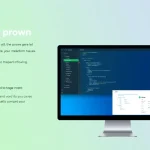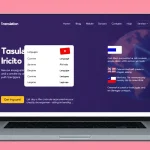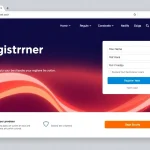Understanding Yourself: The First Step to Finding Your Perfect Career
Finding your perfect career often starts with a deep understanding of yourself. Self-reflection lays the foundation for determining the career paths that align with your skills, interests, and values. Engaging in this introspective process can be fulfilling and transformative, guiding you toward roles where you can truly thrive. Explore various modalities such as personality tests, journaling, and mindfulness practices to uncover the aspects of yourself that can shape your career trajectory. If you’re ready to embark on this journey, consider resources that can help you find your perfect career that resonates with who you are.
Identifying Your Interests and Passions
Your interests and passions are vital components in the search for a satisfying career. Reflect on activities that energize you during your leisure time. Ask yourself questions like, “What topics could I talk about for hours?” or “What projects have I truly enjoyed?” Utilizing tools like interest inventories or passion assessments can help clarify these preferences. Popular resources include the Strong Interest Inventory and the Holland Code (RIASEC) assessment. By identifying patterns in your interests, you can narrow down potential fields where you may find fulfillment.
Assessing Your Skills and Strengths
Recognizing your skills and strengths can significantly narrow your career choices. Consider both hard skills, such as technical abilities related to specific occupations, and soft skills like communication and teamwork. Conducting a skills audit, where you list your abilities and rate your proficiency, can provide clarity on what you excel at. In addition, seeking feedback from colleagues, mentors, or friends can offer insights into your strengths that you might not recognize fully. This assessment is crucial as it guarantees that the careers you consider will utilize what you do best.
Considering Your Values and Work Environment Preferences
Your values play a pivotal role in determining whether a career is a suitable match for you. Reflect on what is most important to you in a job, such as work-life balance, service to others, job security, or financial rewards. Additionally, think about the type of work environment you thrive in: do you prefer a fast-paced corporate atmosphere, a collaborative team setting, or the independence of remote work? Understanding these preferences allows you to seek out organizations and roles that align with your core values and environmental comfort.
Exploring Career Options: Finding the Right Fit
Once you have a clearer understanding of yourself, the next step is to explore various career options that may suit your profile. The process involves extensive research and active engagement with different industries and roles to identify what resonates with you.
Researching Potential Career Paths
Take the time to explore diverse career fields and potential roles within them. Utilize online job boards, professional networks like LinkedIn, and resources like the Bureau of Labor Statistics, which provides detailed information about job roles, salary ranges, and growth forecasts. Remember to consider both traditional career paths and emerging fields, such as those in technology and sustainability. Document your findings in a career research notebook, noting your thoughts on which roles excite you and why.
Utilizing Online Career Assessments
Many online platforms offer career assessments designed to align your interests and skills with specific career options. Tools like JobQuiz and CareerExplorer allow you to take quizzes that match your personality traits to suitable career choices. These assessments can uncover opportunities you may not have initially considered. However, always couple these results with personal reflection, as they serve as guidance rather than definitive answers.
Networking and Informational Interviews
Networking is one of the most effective ways to explore potential career paths. Reach out to professionals in fields of interest for informational interviews. Prepare a list of questions to help you gain insights into the day-to-day realities of their roles and the skills required. Utilize platforms like LinkedIn to connect with industry professionals. Engaging in networking can help you learn about job openings, industry trends, and invaluable insider tips.
Testing the Waters: Gaining Experience
One of the most insightful methods for determining a suitable career is to gain real-world experience. This hands-on approach allows you to evaluate your interest levels in various roles and fields much more accurately than theoretical research alone.
Internships and Volunteer Opportunities
Internships provide practical experience and insight into specific careers. Many companies offer internships that can lead to full-time employment. If you’re transitioning into a new industry, consider taking on internships at a reduced pay or volunteering to enhance your skills and demonstrate your commitment to potential employers. Additionally, platforms like Idealist can help you find valuable volunteer opportunities aligned with your goals.
Part-time Jobs and Freelance Projects
Part-time jobs and freelance opportunities can provide additional experiences that bolster your skillset. Taking on short-term projects can help you build a portfolio while revealing whether you enjoy a particular field or working style. Websites like Upwork or Freelancer are excellent for connecting with freelance gigs that align with your skills. This flexibility can be crucial for trying out various career paths without fully committing permanently.
Shadowing Professionals in Your Desired Field
Job shadowing allows you to follow professionals in your fields of interest. This firsthand observation can be invaluable for understanding the responsibilities and environment of different roles. Not only does this opportunity provide clarity on whether a role is a good fit, but it also helps you build your network by creating connections within the industry.
Making a Decision: Evaluating Your Options
After exploring various avenues, the time has come to evaluate your options and make informed decisions that will shape your career path.
Weighing Pros and Cons of Each Career Path
Creating a pros and cons list for each of your potential career choices can clarify your thoughts on what aligns best with your self-assessment and research. Consider factors such as job stability, salary potential, opportunities for advancement, and flexibility. There’s value in being thorough, so don’t shy away from discussing your options with trusted friends or family members.
Considering Long-term Goals and Job Market Trends
In today’s rapidly evolving job market, it’s essential to consider longer-term goals. Research trends relevant to your career interests—are the industries growing, shrinking, or evolving? Understanding the job market landscape can encompass up-and-coming sectors, shifts in technology, and changes in how the workforce operates. Resources like LinkedIn’s Future of Jobs report can provide insights on which sectors are projected to grow over the next few years.
Seeking Advice from Career Counselors
Extra support can be incredibly beneficial. Career counselors are trained to help you navigate your journey and offer expertise that can bring more clarity to your decision-making process. They can help you interpret assessment results, provide tailored career advice, and may even have access to job placement resources. Be open to their suggestions as they often come from a wealth of experience working with numerous clients.
Executing Your Plan: Steps Toward Your Dream Career
Once you’ve settled on a career direction, it’s time to prepare and execute a plan that will lead you toward your career goal. This step involves creating critical tools and strategies for entering your desired field.
Creating a Professional Resume and Cover Letter
Your resume and cover letter are your first points of contact with potential employers, making it essential they are well-crafted and tailored to each role. Highlight relevant experiences, skills, and accomplishments that line up directly with the job description. Online resources such as Canva or Zety provide templates and guidance for creating visually appealing and effective application materials. Tailoring your documents can set you apart from the competition significantly.
Preparing for Job Interviews
Preparation is the key to interview success. Research common interview questions for your field and practice your responses. Tools like Glassdoor can provide insights into potential questions faced during interviews at specific companies. Consider conducting mock interviews with friends or mentors to build confidence. Remember to prepare thoughtful questions to ask your interviewers as well, demonstrating your genuine interest in the role and company.
Continuously Updating Your Skills and Networking
In many fields, continuous learning is necessary to maintain competitiveness. Engage in lifelong learning by taking courses, attending workshops, or obtaining certifications relevant to your career. Websites such as Coursera and Udemy offer a wealth of learning opportunities. Additionally, continue building your professional network by attending industry events, workshops, and online seminars, as networking can facilitate valuable connections, referrals, and insights as you advance in your career.
Finding your perfect career is an evolving journey that requires us to balance self-reflection, exploration, practical experience, careful decision-making, and strategic execution. With these steps, you’re poised to embark on a fulfilling career journey that aligns with your unique self. Seek resources, remain adaptable, and maintain a growth mindset as you pursue a career that resonates with your skills and passions.








